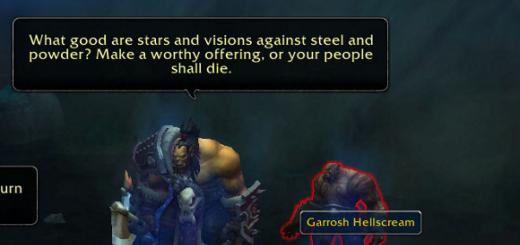A young man named Georges Duroy, endowed with a fairly attractive appearance and undoubted charm, wanders around Paris, thinking about how he should live on after being discharged from the army, in which he spent several years. Georges believes that sooner or later there will be some turn for the better in his fate, he pins his hopes on women, Duroy has long known that he is a huge success with the fair sex.
Georges meets an old acquaintance named Forestier, with whom he was on military service. It turns out that Comrade Duroy has already managed to achieve a lot in the journalistic field, he recommends that Georges also try his hand in this area. The next day, Forestier invites an old friend to visit, and Duroy meets his wife Madeleine. Also present at the dinner is her friend, Madame de Marelle, with her little daughter Lorina.
Mr. Walter also arrives, a very wealthy man who is a deputy and the owner of a respectable newspaper. Duroy at first does not know how to behave in such a society, but then he begins to confidently talk about his stay in Algeria, the ladies look at him with frank interest, and Forestier asks his boss Walter to take Duroy to work.
To begin with, Georges is commissioned for several essays on Algeria, at the same time Duroy manages to find mutual language with the girl Lorina, who usually keeps to herself and is afraid of strangers. Her mother, Clotilde de Marel, does not hide her delight.
Georges proceeds to write the required essay. However, the man's business does not advance further than the name, and he is forced to ask Forestier for help. He does not have free time, and he recommends Duroy to contact his wife, who will cope with such a task no worse.
Madame Forestier indeed, without much effort, dictates to Georges the entire article, which is immediately printed in the newspaper, and the young man becomes a full-time employee of the chronicle department. To write the next essay, he is also trying to use the services of the wife of an old friend, but Forestier himself, seeing his intentions, abruptly announces to Duroy that he needs to work independently. However, no one wants to accept an article written by Georges himself, and as a result, the man decides that he will become engaged in ordinary reporting.
Monsieur Walter is pleased with the way Duroy copes with this role, impudence young man and his ability to penetrate literally everywhere are very handy. But Georges himself is quickly no longer satisfied with the income he receives from the newspaper, he is intensely thinking about how to improve his property and social position.
He decides to get to know Madame de Marelle better, believing that a lady from high society can be useful to him. Duroy really without undue difficulty becomes her lover, and little Lorina comes up with the nickname Dear Friend for him. Clotilde de Marel rents an apartment for their meetings and pays for it herself, Georges does not have the financial resources for this.
After a serious quarrel with Clotilde, Duroy tries to win Madame Forestier, but here, to the considerable surprise of the self-confident man, failure awaits him. Madeleine directly tells him that she does not intend to be his lover, but is ready to offer true friendship. It is she who recommends Georges to try to please Mrs. Walter, the wife of his boss.
During dinner at the Walter family, Duroy is introduced to the publisher's daughters Rose and Suzanne, the eldest of whom is not very attractive, but the youngest is really charming. He again draws attention to how sweet and charming Clotilde de Marel is, it is after this meeting that the lovers resume their relationship.
Georges notices that the health of his friend Forestier is steadily deteriorating, the man does not stop coughing and is constantly losing weight, it is clear to everyone that he does not have long to live. Madame de Marelle notices that his wife will definitely remarry after Forestier's death, Duroy begins to reflect on this issue. Madeleine is taking her husband to the southern regions for treatment, and Georges agrees to help her so that she does not remain alone with her fading husband.
Duroy really supports Madame Forestier in every possible way until the very death of his friend, after a while the widow becomes his lawful wife. Georges's affairs are going well, smart and dexterous Madeleine helps him in everything, he even changes his surname to the noble version of Du Roy.
The wife does not hide from her dear friend that Madame Walter is in love with him. She also says that young Susanne Walter would be a great match for a man if he were free from marriage ties.
Du Roy begins courting Walter's wife. True, a respectable woman struggles with temptation in every way, but Georges's charm still wins, and she becomes his mistress. At the same time, Walter himself turns a successful commercial operation and becomes much richer. Du Roy is now seriously dreaming of marrying the lovely Suzanne, for whom, moreover, a huge dowry is given.
Georges is constantly watching his wife and finally comes to her with the police commissioner at the moment when she is in the arms of Minister Laroche. Du Roy gets the divorce he needs without any problems, but he understands that Walter will not want to give his daughter to him. However, it was not for nothing that the unprincipled Georges spent a lot of time in the house of his patron, pretending to be in love with Madame Walter. Suzanne treats him with sympathy and trust, and Du Roy easily persuades the naive girl to leave with him.
Susanna's parents are horrified to learn of what happened. Mrs. Walter falls into deep despair, realizing that her lover only cynically used her to his advantage. Walter himself understands that now he will be forced to marry the girl to Georges, because she has already been dishonored and compromised forever, although in reality Du Roy has not yet allowed himself anything superfluous regarding Suzanne.
After the wedding, leaving the church with a charming young wife, Georges admits to himself that he managed to achieve everything he aspired to, and in fact climbed the social ladder. However, he recalls with some sadness his relationship with Madame de Marelle, who is also among the guests, and with a glance makes Clotilde understand that he wants to meet with her in the future.
Georges Duroy, a former non-commissioned officer, leaves a Parisian restaurant with three francs in his pocket. Standing in front of the hero Difficult choice: spend this money on two lunches or two breakfasts. Georges envies rich Parisians and sadly recalls his service in Algiers. On the street, the hero meets his army comrade Charles Forestier. The latter occupies a good position in society: he is a journalist, married. Georges complains to a friend that, working in the administration of the Northern railway he is actually starving. Forestier takes him to the editorial office of French Life, where he works himself, treats him to beer, offers to do journalism and invites him to dinner. The friends end the evening at the Folies Bergère, where Georges meets a lady of easy virtue named Rachel.
At a dinner at Forestier's, Duroy meets Ms. Madeleine Forestier, her friend and distant relative Ms. Clotilde de Marelle and her daughter Lorina, the publisher of the French Life, Mr. Walter and his wife, writers Jacques Rival and Norbert de Varin. In society, Georges shows himself to be an excellent connoisseur of Algeria. Mr. Walter commissions a series of essays on life in Africa from him.
Returning home, Duroy sits down at the Memoirs of an African Rifleman. The essay is not written. Instead of working, Duroy dreams of meeting a mysterious stranger, whom he will marry and enter high society. In the morning, Duroy hurries to Forestier and asks him to help with the article. The journalist sends a friend to his wife. Madame Forestier writes the entire essay for Duroy. In the afternoon, Georges is hired by French Life. The next morning, he sees his article printed and, for joy, does not know what to do with himself. Finally, he decides to get a salary at the same place and pay off his job.
In the afternoon, Forestier chastises Duroy for not bringing him a continuation of the essay, and sends a friend along with Saint-Potin to interview. The next morning, the Forestiers refuse to help Duroy, and he writes the article himself. In the evening, Georges goes to the Folies Bergère, where he meets Rachel again. His essay on Algeria is never published.
In a short time, Duroy becomes an excellent reporter. He closely converges with Madame de Marelle and her daughter Lorina and receives from them the nickname "Dear friend". After dinner with the Forestiers, Duroy takes possession of Madame de Marelle in a carriage, after which they become lovers. At the beginning, the characters meet at Duroy's apartment, then Clotilde rents furnished rooms for him. De Marel forces Georges to take her to cheap pubs and brothels. Duroy gets into debt. Clotilde, learning of this, tosses twenty francs into his pocket. In the Folies Bergère, she learns that Duroy has been cheating on her with Rachel, and breaks with him.
Georges borrows money to repay Clotilde, but eats everything up instead. He acquires the friendship of Madame Forestier. The woman advises Duroy to enlist the support of Madame Walter. After a visit to the latter, Georges is appointed head of the chronicle department. At dinner at the Walthers, he again converges with Madame de Marelle and strikes up a friendship with her husband. The poet Norbert de Waren tells Duroy that he lives in constant fear of death.
Louis Langremont of the rival "Per" attacks Georges in writing. Boirenar and Jacques Rival arrange a duel for the heroes. Duroy is very worried on the eve of the duel, but, fortunately, both opponents remain unharmed.
Forestier dies at the Villa Belle in Cannes. Georges spends last days together with a friend. After his death, he proposes to Madeleine. A few months later, she accepts him and asks Georges to "become a nobleman for the wedding", changing his surname to Du Roy de Cantel.
Clotilde cries upon learning of Georges' marriage, but admits that he made a good choice. After the marriage, which took place on May 10, the Duroy spouses go to Georges' parents. On the way, all they do is make love: on the train, in the hotel. Georges's parents - ordinary peasants - at first do not recognize their son and are wary of accepting his wife.
In Paris, Georges works with Madeleine. He is appointed head of the political department instead of the deceased Forestier. Colleagues tease him. Georges constantly mocks Charles in the presence of Madeleine. He is jealous of his wife for a dead friend.
Georges learns from Madeleine that Madame Walter has fallen in love with him. He accompanies the latter, along with her daughters, to a fencing tournament with Jacques Rival. The next day, he declares his love to Mrs. Walter. In the Trinity Church, a woman confesses that she has been in love with Georges for a year, but then runs away from him to confession. The next day, Madame Walter comes to her senses and makes an appointment with the hero in the park. Georges takes her to the apartment rented by Clotilde and pounces on her as if she were legitimate prey.
Ministers are replaced in the French government and French Life becomes an official newspaper. Georges begins to envy the new minister Laroche-Mathieu and dream of a parliamentary career.
For a month and a half of an affair with Ms. Walter, Georges gets pretty tired of her, but falls in love with Clotilde even more. Mrs. Walter, wanting to keep her lover, tells him about a secret mission in Morocco, where you can easily get rich. Georges shares a secret with Clotilde, and immediately quarrels with her because of the gray hair of Madame Walter found on him.
The Comte de Vaudrec, a good friend of Madeleine, dies. He leaves her all his fortune. Georges agrees to give his wife permission to accept the inheritance only if she gives him half.
After conquering Morocco, Walter earns 50 million. The five hundred thousand francs received from Vaudrec seem to Georges to be miserable crumbs. He begins to think that he acted hastily by marrying Madeleine, and not Susanna, one of Walter's daughters.
At a reception at the new Walter mansion, Georges breaks with the mistress of the house and begins to seduce Susanna. Minister of Foreign Affairs Laroche-Mathieu gives the hero the Order of the Legion of Honor. Together with the police commissioner, Georges establishes the fact of his wife's infidelity with Laroche and gets a divorce three months later.
Susanna runs to Georges. Walter agrees to the marriage. Ms. Walter has a nervous attack. Georges and Susanna are married. In the church, the hero realizes that he loves only one woman - Clotilde.
Georges Duroy, the son of wealthy peasants, keepers of a vegetable marrow, is endowed with a happy appearance by the whim of nature. He is slim, tall, blond, he has a wonderful mustache ... He is very popular with women, and he is in Paris. But he has three francs in his pocket, and he won't get his pay until two days later. He is hot, he wants beer ... Duroy wanders around Paris and waits for an opportunity that should present itself, right? The case is most likely a woman. So it will be. All his cases will come from women ... In the meantime, he meets Forestier.
They served together in Algiers. Georges Duroy did not want to be the first in the village and tried his luck in military service. For two years he robbed and killed Arabs. During this time, he developed the habit of walking with his chest puffed out and taking what he wanted. And in Paris you can stick out your chest and push passers-by, but here it is not customary to mine gold with a revolver in your hand.
But the fat Forestier succeeded: he is a journalist, he is a wealthy man, he is complacent - he treats an old friend with beer and advises him to take up journalism. He invites Georges to dinner the next day and gives him two louis (forty francs) so that he can rent a decent suit.
Since this all started. Forestier, it turns out, has a wife - an elegant, very pretty blonde. Her friend is a burning brunette Madame de Marelle with her little daughter. Mr. Walter, deputy, rich man, publisher of the newspaper "French Life" granted. There is also a famous feuilletonist and a famous poet... And Duroy does not know how to handle a fork and does not know how to deal with four glasses... But he quickly orients himself on the ground. And here - oh, how by the way! - the conversation went about Algeria. Georges Duroy enters the conversation as if cold water, but they ask him questions ... He is in the center of attention, and the ladies do not take their eyes off him! And Forestier, a friend of Forestier, does not miss the moment and asks his dear patron, Mr. Walter, to take Georges to work in the newspaper ... Well, we'll see, but for now Georges has been ordered two or three essays on Algeria. And one more thing: Georges tamed Lorina, Madame de Marelle's little daughter. He kisses the girl and rocks her on his knee, and the mother is amazed and says that M. Duroy is irresistible.
How happily everything began! And all because he is so handsome and well done ... All that remains is to write this damn essay and bring it to Mr. Walter by three o'clock tomorrow.
And Georges Duroy gets down to work. Diligently and beautifully, he displays the title on a clean sheet: "Memoirs of an African shooter." This name was suggested by Mrs. Walter. But things don't go any further. Who knew that it was one thing to chat at the table with a glass in hand, when the ladies did not take their eyes off you, and it was quite another thing to write! A diabolical difference... But nothing, the morning is wiser than the evening.
But in the morning it's not like that. Efforts are in vain. And Georges Duroy decides to ask his friend Forestier for help. However, Forestier hurries to the newspaper, he sends Georges to his wife: she, they say, will help no worse.
Madame Forestier seated Georges at the table, listened to him, and after a quarter of an hour began dictating an article. Luck carries him. The article is printed - what happiness! He was accepted into the chronicle department, and finally it is possible to leave the hated office of the Northern Railway forever. Georges does everything correctly and accurately: first he received a salary for a month at the box office, and only then he was rude at parting to the boss - he enjoyed it.
One is not good. The second article is not published. But this is not a problem - you need to take one more lesson from Ms. Forestier, and this is a pleasure. Here, however, no luck: Forestier himself was at home and told Georges that, they say, he did not intend to work instead of him ... Pig!
Duroy is angry and will do the article himself, without any help. You'll see!.. And he made an article, wrote. Only it was not accepted: it was considered unsatisfactory. He redid it. Again not accepted. After three alterations, Georges spat and completely went into reporting.
This is where he turned around. His slyness, charm and arrogance came in very handy. M. Walter himself is satisfied with Duroy's employee. Only one thing is bad: getting twice as much in the newspaper than in the office, Georges felt like a rich man, but this did not last so long. The more money, the more they are missing! And then: after all, he looked into the world big people but remained out of this world. He is lucky, he serves in the newspaper, he has acquaintances and connections, he enters the offices, but ... only as a reporter. Georges Duroy is still a poor man and day laborer. And here, nearby, in their own newspaper - here they are! - people with pockets full of gold, they have luxurious houses and spicy wives ... Why do they have all this? Why not him? There is some mystery here.
Georges Duroy does not know the solution, but he knows what his strength is. And he remembers Madame de Marelle, the one who was with her daughter at Forestier's dinner. “I’m always at home until three o’clock,” she said then. Georges called at half past three. Of course he was agitated, but Madame de Marelle is the very hospitality, the very gracefulness. And Lorina treats him like a friend ... And now Georges is invited to dinner in a restaurant, where they will be with Madame de Marelle and the Forestier spouses - two couples.
Dinner in a separate office is refined, lengthy and spicy with casual, light chatter on the verge of obscenity. Madame de Marelle promised to get drunk and kept her promise. Georges accompanies her. In the carriage, he is indecisive for some time, but it seems that she moved her leg ... He rushed to the attack, she surrendered. Finally, he mastered a real secular woman!
The next day, Duroy has breakfast with his beloved. He is still timid, does not know how things will go on, but she is charmingly sweet, and Georges plays falling in love ... And it is so easy in relation to such a magnificent woman! Then Lorina enters and joyfully runs to him: “Ah, dear friend!” So Georges Duroy got his name. And Madame de Marelle - her name is Clotilde - turned out to be a delightful mistress. She hired a small apartment for their dates. Georges is dissatisfied: he can't afford it... No, it's already been paid! No, he can't let that happen... She begs, more, more, and he... yields, believing that it's actually fair. No, but how sweet she is!
Georges is completely penniless, but after each meeting he finds one or two gold coins in his vest pocket. He is outraged! Then he gets used to it. Only to calm his conscience keeps counting his debt to Clotilde.
It so happened that the lovers quarreled a lot. It looks like it's a break. Georges dreams - in the form of revenge - to return the debt to Clotilde. But there is no money. And Forestier, in response to a request for money, lent ten francs - a miserable handout. Nothing, Georges will repay him, he will cuckold the old Friend. Moreover, he now knows how easy it is.
But what is it? The attack on Madame Forestier was immediately bogged down. She is affable and frank: she will never become Duroy's mistress, but she offers him her friendship. Perhaps it is more expensive than Forestier's horns! And here is the first friendly advice; pay a visit to Mrs. Walter.
The dear friend managed to show himself to Mrs. Walther and her guests, and not a week goes by, and he is already appointed head of the chronicle department and invited to dinner with the Walthers. Such is the price of friendly advice.
At dinner at the Walthers it happened significant event, but Dear friend does not yet know that this is an important event: he is introduced to the two daughters of the publisher - eighteen and sixteen years old (one is ugly, the other is pretty, like a doll). But another Georges could not fail to notice, Clotilde is still seductive and sweet. They reconciled and the connection was restored.
Forestier is sick, he is losing weight, coughing, and it is clear that he is not a tenant. Clotilde says by the way that Forestier's wife will not be slow to get married as soon as everything is over, and Dear Friend thought about it. In the meantime, the wife took the poor Forestier to the south - to be treated. At parting, Georges asks Madame Forestier to count on his friendly help.
And help was needed: Madame Forestier asks Duroy to come to Cannes, not to leave her alone with her dying husband. A dear friend feels the open space in front of him. He goes to Cannes and conscientiously fulfills a friendly duty. Until the end. Georges Duroy was able to show Madeleine Forestier that he was a dear friend, beautiful and good person.
And everything worked out! Georges marries the widow Forestier. Now he has an amazing assistant - a genius behind the scenes of journalism and political play ... And he has a beautifully arranged house, and he has now become a nobleman: he divided his last name into syllables and took the name of his native village, he is now du Roi de Cantel.
He and his wife are friends. But friendship must also know its limits... Ah, why does such a clever Madeleine tell Georges out of friendship that Madame Walter is crazy about him?... And even worse: she says that if Georges were free, she would advise him to marry Susanna, Walther's pretty daughter.
The dear friend thought again. And Ms. Walter, if you look closely, is still very much even nothing ... There is no plan, but Georges starts the game. This time, the object is respectable and is fighting desperately with itself, but the Dear Friend has overlaid it from all sides and drives it into a trap. And drove. The hunt is over, but the prey wants to go to the hunter again and again. He has other things to do. Then Madame Walter reveals a secret to the hunter.
military expedition resolved in Morocco. Walter and Laroche, the foreign minister, want to cash in on this. They bought Moroccan loan bonds at a low price, but their value will skyrocket soon. They make tens of millions. Georges can also buy before it's too late.
Tangier - the gateway to Morocco - is captured. Walter has fifty million, he bought a luxurious mansion with a garden. And Duroy is angry: again he does not have big money. True, the wife inherited a million from a friend, and Georges chopped off half of it, but this is not that. Here is Susanna, Walter's daughter, twenty million dowry...
Georges with the vice police hunts down his wife. She was caught with Minister Laroche. A dear friend knocked down the minister with one blow and got a divorce. But Walter would never give up Susanna for him! This also has its own way. It was not for nothing that he seduced Madame Walter: while Georges dined and had breakfast with her, he became friends with Susanna, she believes him. And dear friend took the pretty little fool away. She's compromised, and her father has nowhere to go.
Georges Duroy with his young wife leaves the church. He sees the Chamber of Deputies, he sees the Bourbon Palace. He has achieved everything.
But he will never be hot or cold again. He would never crave beer so badly.
retold
bright representative French literature 19th century is an unsurpassed connoisseur of human hearts Maupassant. "Necklace" is a writer's short story that touches on social and philosophical issues. Not so long ago, the work was included in school curriculum 10th grade. We will talk about this novel in this article. Let's break it down and analyze it.
Guy de Maupassant, "Necklace": a summary. tie
The main character was born in the family of an official. Matilda is beautiful and graceful, but she has no dowry. The girl could not hope to be married to a wealthy man from a good family. Therefore, she had to accept the offer of a petty official and become his wife, Madame Loiselle.
Married life did not save the heroine from poverty, she was still forced to dress modestly and without frills. The woman suffered terribly from her position, because she believed that she was born for wealth and luxury.
Dream of a better life
Maupassant portrayed the female characters perfectly. "Necklace" is a story that describes the desires of many girls in the 19th century.
In a dream, the heroine sees an expensively furnished house, brightly lit halls, windows draped with oriental fabrics, footmen, upholstered furniture, and hot fireplaces. In her dreams, she dreams of a completely different life: salons, expensive trinkets, eminent and wealthy friends who surround her with attention.

In the evenings, the heroine sat at the table opposite her husband. He removed the lid from the dish and happily announced: "soup with cabbage!". And at that time she dreamed of silverware, exquisite dishes, a dining room decorated with tapestries, and subtle compliments. The young woman thought of lavish receptions, rich dressing rooms, and expensive jewelry. She believed that she was created for this, she wanted everyone to envy her.
She had a rich friend - Madame Forestier, with whom they were raised in the same monastery in childhood. Sometimes the heroine went to visit her, but this upset her even more. Returning from the guests, the woman cried from despair and grief, promised that she would never go there again.
Invitation
Rather petty and narrow-minded depicts his heroine Maupassant ("Necklace"). The summary draws before readers a rather unattractive image of a woman who craves only wealth.
One evening, Monsieur Loiselle returned from work and happily showed his wife an invitation to a party with the Minister public education, who served as an official. But the heroine was not delighted. She threw the letter away and asked why her husband had shown it. Mr. Loisel thought that his wife would be delighted, because she practically does not go anywhere, with great difficulty he got invitations especially for her.
The woman replied that she had nothing to go, burst into tears and asked to give the invitation to someone else. Her husband began to calm her down and asked how much a decent dress would cost. Calculating, Matilda answered - 400 francs. This sum was set aside by Monsieur Loiselle for the purchase of a gun, but he gave it to his wife.

Training
The plot of the short story "The Necklace" (de Maupassant) is approaching its climax. So, preparations for the ball are in full swing. Madame Loisel is in constant agitation, worries, sadness. One day her husband asked what was wrong with her. Matilda bitterly replied that she did not have any jewelry and nothing to revive the sewn outfit. Better not to go to the ball at all than like this.
He suggested that she decorate the dress with roses - in winter this is quite a luxurious decoration. But the wife replied that this would humiliate her, she would look like a beggar. Then Monsieur Loisel offered to borrow jewelry from a wealthy friend.
Matilda goes to her the very next day. Madame Forestier allows her to choose from her jewelry what she likes. Matilda goes through her friend's jewelry for a very long time, but she can't decide. Suddenly, her eyes catches a black satin case, which contained a diamond necklace. The woman clutched the jewel to her chest in delight and ran to the mirror. Forestier allowed the necklace to be borrowed.
dinner party

And then came the ball. Perfectly describes the delight of his heroine Maupassant. The necklace and new dress ensured Madame Loiselle's success in society. Men paid attention to her, invited her to waltz, introduced themselves to her. Matilda reveled in her position without thinking about anything. It was her victory, she finally felt happy.
The couple left the dinner party at four o'clock in the morning. Monsieur Loisel, all the time that his wife was having fun, dozed in the company of other officials in the empty salon. When they were about to leave, the husband threw a cloak around Matilda's shoulders, which was wretched and poor. The heroine wanted to run away as soon as possible so that no one would see this shame. But Monsieur Loiselle asked me to wait in the house while he went outside and found the cab. But the woman did not obey, she ran out into the street. The couple had to look for a cab for a long time. They shuddered a lot. And only at the river they came across an old carriage.
Loss
Continues to unwind the storyline of the Maupassant novel. "Necklace" ( summary we are now considering) again takes the reader to the modest home of the Loiselle couple. Matilda was silent, she went up to her with the thought that her life was over. And the owner of the house was thinking about the upcoming work, which he would have to go to by 10 o'clock.

The heroine finally decided to look at herself in the mirror, but was frightened, since she did not have a necklace with her. She told her husband about it. The couple searched the house and dress pockets, but found nothing. They soon realized that the necklace was left in the fiacre, but no one remembered the number.
Monsieur Loiselle decided to return to where they had walked and see if they were lucky and found the missing item. The husband returned at 7 am, he could not find anything. He spent the day going to the police, posting a missing person ad in the papers, and going around the bus stops. But none of this worked.
The official said that the cost of the jewelry should be returned. They started looking for the jeweler who made it.
substitution
Maupassant's short story "The Necklace" changes its narrative tone. There are no more comparisons of rich and poor life in it, only fear and a desire to quickly find and return the loss.
Soon the spouses manage to find a similar decoration. The owner of the shop asks forty thousand francs for him, but he is ready to pay for thirty-six. They asked me to keep the necklace for three days. And they agreed that if the loss is found before the end of February, the jeweler will buy his thing back.
Mr. Loizel borrowed 18 thousand from his father, the rest had to be borrowed from friends and acquaintances. He managed to raise the required amount and redeem the necklace.
Matilda put it in a box and took it to her friend. She was unhappy with the delay, but did not even look at the jewelry and put it in the closet. Madame Loisel was very glad that the substitution was not found, otherwise she could be accused of theft.
denouement
Now he allows his heroine to know the real poverty of Maupassant. The necklace cost Monsieur Loiselle dearly. And all debts must be paid. The couple abandoned their only maid and rented a very cheap apartment. Matilda had to learn what real work is. She cooked the food herself, washed dishes, washed clothes, cleaned, carried water, took out the garbage, bought food. But that didn't break her spirit. She was willing to work until the debt was paid in full.

Her husband also worked tirelessly. He took work home, sat at the table all evenings and nights. So they lived for 10 years, until everything was paid. Matilda has aged a lot, has become stronger and rougher. Sometimes she thought about that evening when she lost her necklace, and thought what would have happened if the jewelry had not disappeared.
Madame Loiselle met a friend of hers on a walk one day, whom she had not seen since she returned the necklace. Matilda told her about the change. Madame Forestier threw up her hands and exclaimed: “All the diamonds were false! They cost at most 500 francs.”
Maupassant, "Necklace": analysis
The work was written in 1884. It raises several problems at once: the fear of appearing poor, the conflict of opportunities and desires, the destructive effect of wealth, social inequality.
At the time, this short story made a great impression on readers. Firstly, the author managed to touch upon an acute social theme, and secondly, the ending of the work was unexpected and made a strong impression.
The novel tells how easy it is to lose everything in an instant. Maupassant shows how high the price of short-lived happiness can be. The life of the heroes collapses in an instant, and nothing can be changed.
As for the composition of the work, it is divided into three parts. In the first, we see the calm and carefree life of Matilda, the wife of a petty official, who is dissatisfied with her position. The second is a ball at which the heroine finally feels happy. The third is the misadventures that befell the Loiselle family after the loss of the necklace.
As for the moralizing motive, Maupassant punishes his heroine for her discontent, whims and desire for more and inaccessible. Matilda thought she was living in poverty, so the author made her find out what real poverty is.

Image of Matilda
Guy de Maupassant treats his main character rather cruelly. "Necklace" is the story of a simple woman with simple desires. Nevertheless, the image of Matilda is psychologically accurate and verified. Each of her actions and decisions is reflected in the character and changes it. At first, a fragile, pampered young lady appears before the reader, dreaming of high society and suffering from her poor position. However, the tests seriously change it. Matilda was not broken by overwork. She readily took to him, not pitying herself and not dreaming of anything else. At the end of the work, Madame Loiselle begins to command respect, as she withstood everything and showed that she was strong in spirit.
Georges Duroy, the son of prosperous peasants, keepers of a tavern, by the whim of nature, is endowed with a happy appearance. He is slender, tall, blond, he has a wonderful mustache ... He is very popular with women, and he is in Paris. But he has three francs in his pocket, and he won't get his pay until two days later. He is hot, he wants beer ... Duroy wanders around Paris and waits for an opportunity that must present itself, right? The case is most likely a woman. So it will be. All his cases will come from women ... In the meantime, he meets Forestier.
They served together in Algiers. Georges Duroy did not want to be the first in the village and tried his luck in military service. For two years he robbed and killed Arabs. During this time, he developed the habit of walking with his chest puffed out and taking what he wanted. And in Paris you can stick out your chest and push passers-by, but here it is not customary to mine gold with a revolver in your hand.
But the fat Forestier succeeded: he is a journalist, he is a wealthy man, he is complacent - he treats an old friend with beer and advises him to take up journalism. He invites Georges to dinner the next day and gives him two louis (forty francs) so that he can rent a decent suit.
Since this all started. Forestier, it turns out, has a wife - an elegant, very pretty blonde. Her friend is a burning brunette Madame de Marelle with her little daughter. Mr. Walter, deputy, rich man, publisher of the newspaper "French Life" granted. There is also a famous feuilletonist and a famous poet ... And Duroy does not know how to handle a fork and does not know how to deal with four glasses ... But he quickly orients himself on the ground. And here - oh, how by the way! - the conversation went about Algeria. Georges Duroy enters into a conversation like cold water, but he is asked questions ... He is in the center of attention, and the ladies do not take their eyes off him! And Forestier, a friend of Forestier, does not miss the moment and asks his dear patron, Mr. Walter, to take Georges to work in the newspaper ... Well, we'll see, but for now Georges has been ordered two or three essays on Algeria. And another thing: Georges tamed Lorina, Madame de Marelle's little daughter. He kisses the girl and rocks her on his knee, and the mother is amazed and says that M. Duroy is irresistible.
How happily everything began! And all because he is so handsome and well done ... All that remains is to write this damn essay and bring it to Mr. Walter by three o'clock tomorrow.
And Georges Duroy gets down to work. Diligently and beautifully, he displays the title on a clean sheet: "Memoirs of an African shooter." This name was suggested by Mrs. Walter. But things don't go any further. Who knew that it was one thing to chat at the table with a glass in hand, when the ladies did not take their eyes off you, and it was quite another thing to write! Devilish difference ... But nothing, the morning is wiser than the evening.
But in the morning it's not like that. Efforts are in vain. And Georges Duroy decides to ask his friend Forestier for help. However, Forestier hurries to the newspaper, he sends Georges to his wife: she, they say, will help no worse.
Madame Forestier seated Georges at the table, listened to him, and after a quarter of an hour began dictating an article. Luck carries him. The article is printed - what happiness! He was accepted into the chronicle department, and finally it is possible to leave the hated office of the Northern Railway forever. Georges does everything correctly and accurately: first he received a salary for a month at the box office, and only then he was rude at parting to the boss - he enjoyed it.
One is not good. The second article is not published. But this is not a problem - you need to take another lesson from Madame Forestier, and this is a pleasure. Here, however, no luck: Forestier himself was at home and told Georges that, they say, he did not intend to work instead of him ... Pig!
Duroy is angry and will do the article himself, without any help. You'll see!.. And he made an article, wrote. Only it was not accepted: it was considered unsatisfactory. He redid it. Again not accepted. After three alterations, Georges spat and completely went into reporting.
This is where he turned around. His slyness, charm and arrogance came in very handy. M. Walter himself is satisfied with Duroy's employee. Only one thing is bad: getting twice as much in the newspaper than in the office, Georges felt like a rich man, but this did not last so long. The more money, the more they are missing! And then: after all, he looked into the world of big people, but remained outside this world. He is lucky, he serves in the newspaper, he has acquaintances and connections, he enters the offices, but ... only as a reporter. Georges Duroy is still a poor man and a day laborer. And here, nearby, in their own newspaper - here they are! - people with pockets full of gold, they have luxurious houses and spicy wives ... Why do they have all this? Why not him? There is some mystery here.
Georges Duroy does not know the solution, but he knows what his strength is. And he remembers Madame de Marelle, the one who was with her daughter at Forestier's dinner. "I'm always at home until three o'clock," she said at the time. Georges called at half past three. Of course he was agitated, but Madame de Marelle is the very hospitality, the very gracefulness. And Lorina treats him like a friend ... And now Georges is invited to dinner at a restaurant, where they will be with Madame de Marelle and the Forestier spouses - two couples.
Dinner in a separate office is refined, lengthy and spicy with casual, light chatter on the verge of obscenity. Madame de Marelle promised to get drunk and kept her promise. Georges accompanies her. In the carriage, he is indecisive for some time, but it seems that she moved her leg ... He rushed to the attack, she surrendered. Finally, he mastered a real secular woman!
The next day, Duroy has breakfast with his beloved. He is still timid, does not know how things will go on, but she is charmingly sweet, and Georges plays love ... And it is so easy in relation to such a magnificent woman! Then Lorina enters and joyfully runs to him: “Ah, dear friend!” This is how Georges Duroy got his name. And Madame de Marelle - her name is Clotilde - turned out to be a delightful mistress. She hired a small apartment for their dates. Georges is dissatisfied: he can't afford it... No, it's already been paid! No, he can't let that happen... She pleads, more, more, and he... gave in, believing that it was actually fair. No, but how sweet she is!
Georges is completely penniless, but after each meeting he finds one or two gold coins in his vest pocket. He is outraged! Then he gets used to it. Only to calm his conscience keeps counting his debt to Clotilde.
It so happened that the lovers quarreled a lot. It looks like it's a break. Georges dreams - in the form of revenge - to return the debt to Clotilde. But there is no money. And Forestier, in response to a request for money, lent ten francs - a miserable handout. Nothing, Georges will repay him, he will cuckold the old Friend. Moreover, he now knows how easy it is.
But what is it? The attack on Madame Forestier was immediately bogged down. She is affable and frank: she will never become Duroy's mistress, but she offers him her friendship. Perhaps it is more expensive than Forestier's horns! And here is the first friendly advice; pay a visit to Mrs. Walter.
The dear friend managed to show himself to Madame Walther and her guests, and not a week goes by, and he is already appointed head of the chronicle department and invited to dinner with the Walthers. Such is the price of friendly advice.
An important event took place at Walter's dinner, but Dear Friend does not yet know that this is an important event: he is introduced to the two daughters of the publisher - eighteen and sixteen years old (one is ugly, the other is pretty, like a doll). But another Georges could not fail to notice, Clotilde is still seductive and sweet. They reconciled and the connection was restored.
Forestier is sick, he is losing weight, coughing, and it is clear that he is not a tenant. Clotilde says by the way that Forestier's wife will not be slow to get married as soon as everything is over, and Dear Friend thought about it. In the meantime, the wife took the poor Forestier to the south - to be treated. At parting, Georges asks Madame Forestier to count on his friendly help.
And help was needed: Madame Forestier asks Duroy to come to Cannes, not to leave her alone with her dying husband. A dear friend feels the open space in front of him. He goes to Cannes and conscientiously fulfills a friendly duty. Until the end. Georges Duroy was able to show Madeleine Forestier that he was a dear friend, a wonderful and kind person.
And everything worked out! Georges marries the widow Forestier. Now he has an amazing assistant - a genius behind the scenes of journalism and political play ... And he has a beautifully arranged house, and he has now become a nobleman: he divided his last name into syllables and took the name of his native village, he is now du Roy de Cantel.
He and his wife are friends. But friendship must also know its limits... Ah, why does such a clever Madeleine, out of friendship, tell Georges that Madame Walter is crazy about him? Susanna, Walter's pretty daughter.
The dear friend thought again. And Ms. Walter, if you look closely, is still very much even nothing ... There is no plan, but Georges starts the game. This time, the object is respectable and is fighting desperately with itself, but the Dear Friend has overlaid it from all sides and drives it into a trap. And drove. The hunt is over, but the prey wants to go to the hunter again and again. He has other things to do. Then Madame Walter reveals a secret to the hunter.
Military expedition to Morocco resolved. Walter and Laroche, the foreign minister, want to cash in on this. They bought Moroccan bonds cheaply, but their value will skyrocket soon. They make tens of millions. Georges can also buy before it's too late.
Tangier - the gateway to Morocco - is captured. Walter has fifty million, he bought a luxurious mansion with a garden. And Duroy is angry: again he does not have big money. True, the wife inherited a million from a friend, and Georges chopped off half of it, but that's not it. Here for Susanna, the daughter of Walter, twenty millions of dowry ...
Georges with the vice police hunts down his wife. She was caught with Minister Laroche. A dear friend knocked down the minister with one blow and got a divorce. But Walter would never give up Susanna for him! There is a trick to this too. No wonder he seduced Madame Walter: while Georges dined and breakfasted with her, he became friends with Susanna, she believes him. And dear friend took the pretty fool away. She's compromised, and her father has nowhere to go.
Georges Duroy with his young wife leaves the church. He sees the Chamber of Deputies, he sees the Bourbon Palace. He has achieved everything.
But he will never be hot or cold again. He will never want so much
The problematic that dominates the novel does not at the same time exclude the writer's philosophical reflections on the meaning of human life, in which Maupassant's growing pessimism is felt. Section 3. Artistic features of the novels "Life" and "Dear Friend": translational aspect 3.1 Landscape as one of artistic features novel "Life" 3.1.1 Definition of the concept landscape LANDSCAPE - (from fr. ...
Chambers of Deputies and front statesmen, but at the same time he is not able to finish the feuilleton begun for him by Madeleine. He seduces Clotilde de Marelle, whose daughter Lorinna calls D. "Dear friend". Especially for dates with him, Clotilde rents an apartment, and during the lack of money secretly slips money. In order to improve his official position, D. consults, after first confessing to ...
And this is an adjective, and one should never be satisfied with the approximate ... "Flaubert, among other things, taught the highest sensitivity and comprehensiveness of the writer - to be" at the same time a desert, a traveler and a camel. Maupassant worked hard, spending at least seven years on the Flaubert school of craftsmanship. Many plots and themes were accumulated by him during this time. However, Maupassant's work...
They are being portrayed. Tse bula was a special form of vikritta of bourgeois activity. Participants of the collection “Evenings in Medyan” wrote their novels in protest against embellished battle literature; Maupassant didn’t confront her in Pampushtsi, didn’t turn on her, but instead pitted his lacunae images of his active little ones.










